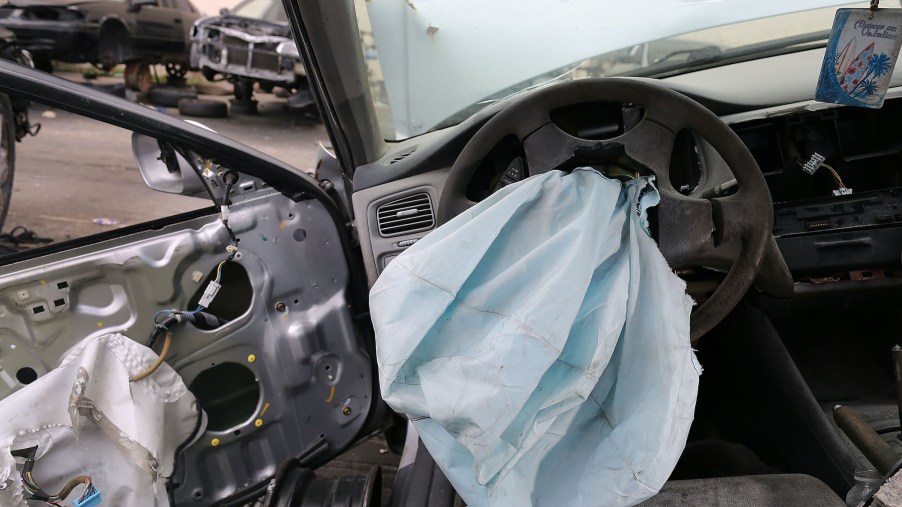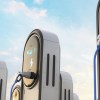
Honda’s $85 Million Mistake Is Finally Settled
For the better half of a decade, Honda has been embroiled in a highly-debated class-action lawsuit. Hundreds of people experienced serious injuries, and 25 people lost their lives due to Honda’s use of a faulty product.
This week, the Japanese automaker agreed to settle the case for $85 million with 46 American states. They also agreed, as part of the settlement, to adopt new product safety protocols to protect drivers of their vehicles.
Exploding Takata airbags was a huge deal for Honda
The lawsuit began after countless drivers experienced problems with defective Takata airbags. After discovering the problem, Honda issued a recall that started in 2008 and affected more than 12 million vehicles. It appeared that the driver-side front airbag used inflators that were causing a great risk of explosion. Despite the recall, Honda was still telling consumers that their airbags were safe.
There were 19 other auto manufacturers that used the same Takata airbags in their vehicles, but according to the NHTSA, Honda cars were experiencing more fatalities than any other car company. Drivers of 2001 to 2003 Honda and Acura cars were affected by the recall and urged to go to a dealer for replacement parts.
According to Car Complaints, Executive Vice President of Honda, Rick Schostek, stated, “The Takata recalls are unlike anything the automaker has witnessed before, leading to the extraordinary measures the automaker continues to take.”
It was determined that the defective Takata inflators contained a propellant that was unstable when exposed to moisture. This meant that even in a minor crash, the metal inflator would act like a “grenade to the face” in some instances. Metal fragments were blasting through the interior of the vehicle, injuring passengers as well.
The states Honda had to settle with
The newly-announced agreement by Honda includes participants in the legal action from the following states:
Arkansas, Connecticut, Delaware, District of Columbia, Florida, Georgia, Maryland, New Jersey, Oregon, South Dakota, Texas, Alabama, Alaska, Colorado, Idaho, Illinois, Indiana, Iowa, Kansas, Kentucky, Louisiana, Maine, Massachusetts, Michigan, Minnesota, Mississippi, Missouri, Montana, Nebraska, Nevada, New Hampshire, New York, North Carolina, North Dakota, Ohio, Pennsylvania, Rhode Island, South Carolina, Tennessee, Utah, Vermont, Virginia, Washington, West Virginia, Wisconsin, Wyoming and the Northern Mariana Islands.
Takata airbag recalls have included more than 100 million inflators, with 60 million of them being installed in cars purchased in the United States.
Michigan’s Attorney General, Dana Nessel announced in a press release that, “Consumers should be able to rely on the products that are designed to keep them safe and if companies that use those products fail to ensure the safety standards outlined by our laws, they can expect to answer for that negligence.” Michigan will see $2.14 million from the Honda settlement.
Is Takata solely responsible?
Honda is still placing the blame on Takata but many consumers believe that the automaker is responsible for not being careful with the volatile explosive used in the airbags. The chemical in question is ammonium nitrate, which Honda employees should have known was susceptible to malfunctioning.
The lawsuit claims that Honda did not immediately notify the proper safety officials or warn consumers when they discovered the airbags were faulty. Instead, they continued to insist that the inflators were safe.
The states involved in the class-action lawsuit, according to Car Complaints, stated that “Honda’s actions were unfair, deceptive, and violated consumer protection laws across the country.”
As part of the settlement agreement, Honda will improve the way it maintains records and keeps track of parts when working with third-party suppliers. The automaker also agreed to “take a more proactive approach to prevent such disasters from occurring in the future.”
In the end, Honda did not acknowledge any wrongdoing and put all the blame on Takata. In 2017, the airbag manufacturer filed bankruptcy after pleading guilty to federal fraud charges.


